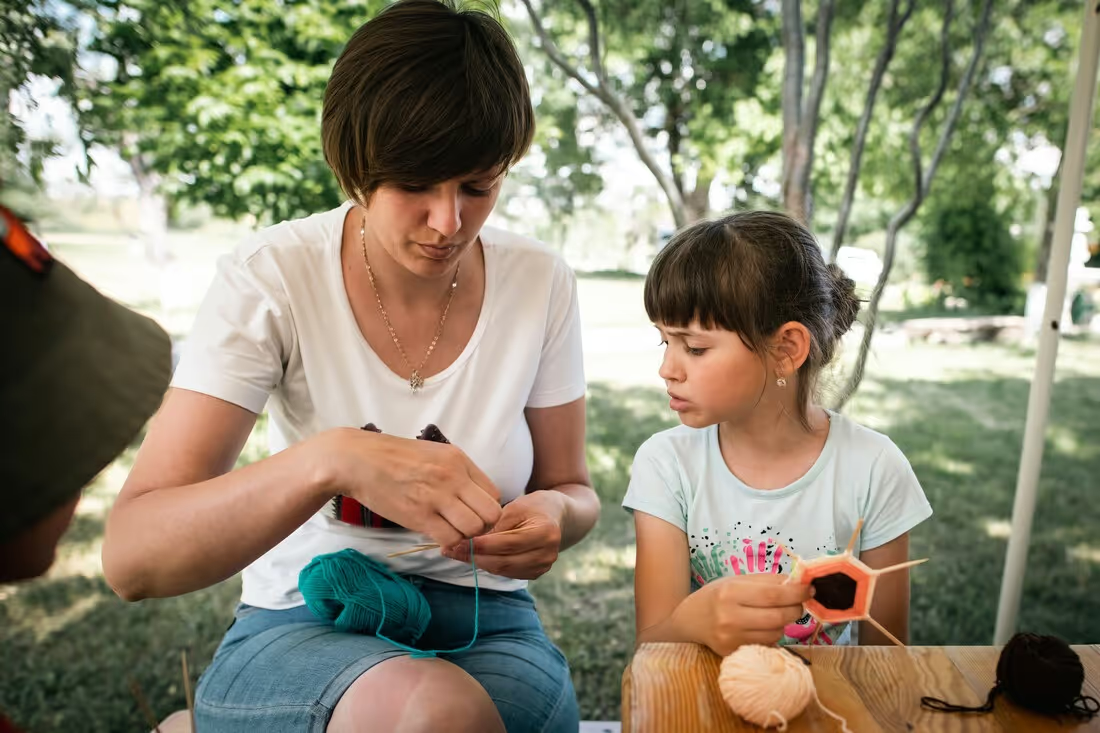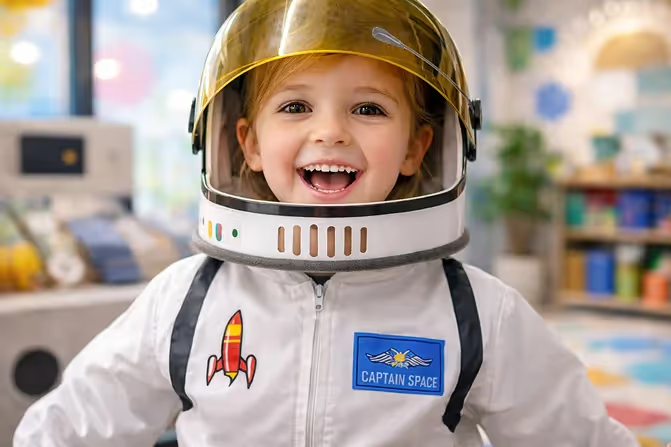ISSA and War Child join forces in new partnership initiative
Since the start of the war in Ukraine in February 2022, more than 12 million people have fled their homes. The UNHCR estimates that over 7 million people are thought to be internally displaced in Ukraine, while more than 5.8 million Ukrainian refugees have been recorded across Europe — with the highest numbers in Poland, Romania, and Moldova. Even though young children under the age of 5 make up close to 20% of the refugee population — according to estimates by UNICEF — early childhood services have been underfunded and under-prioritized in humanitarian response plans.
From the outset, ISSA Members and other organizations in neighbouring countries have mobilized their resources and capacities to provide immediate short and medium-term support to refugee children and their families in cooperation with local authorities. However, there continues to be high demand for equipping the workforce to deliver programs focused on psychosocial support and trauma-informed interventions. These will strengthen the Early Childhood Development (ECD) communities by enabling them to tune their responses to the needs of refugees, while simultaneously building inclusive and empathic societies in the countries hosting large numbers of refugees.
Partnering to build capacity
To this end, War Child has partnered with ISSA to provide critical funding that will be used by ISSA and its Member organizations to deliver crucial psychological first aid and psychosocial support to young children and their families in the countries dealing most immediately with refugees and internally displaced persons. Experiencing armed conflict can have life-long effects on children’s mental health and wellbeing, so it is imperative that it is dealt with swiftly and sensitively. The ISSA Members that will engage in this partnership are:
- Step by Step Center (Romania)
- Ukrainian Step by Step Foundation (Ukraine)
- Transcarpathian Regional Charitable Fund “Blaho” (Ukraine)
- Comenius Foundation for Child Development (Poland)
- Step by Step Educational Program (Moldova)
Aims of the partnership
War Child works to improve the resilience and wellbeing of children living with violence and armed conflict. By bringing together the respective technical expertise and resources of ISSA and War Child, and by tapping into the experience of Amna (another ISSA Member organization), this partnership will go further than simply connecting funds with ISSA Member organizations on the ground. The partnership will increase the capacity of ISSA’s Program staff and Members as they work to develop capacity building programs for their peers in other European countries.
ISSA will activate its network to develop and roll-out these capacity building programs at country and cross-country level, with the aim of strengthening and sustaining early years practitioners to provide appropriate psychosocial support to children and families. This capacity building initiative will continue to grow as ISSA joins forces with other partners, including UNICEF, to engage more and more member organizations in countries hosting refugees.
Throughout the initiative, professionals working with young children will receive training on providing psychosocial support. This includes safely identifying and referring children in need, assessing children’s psychosocial reactions to conflict and displacement, and offering support to caregivers to ensure their own well-being, as the safety and welfare of children — especially the most vulnerable — relies on the well-being of their teachers and caregivers. These teachings will be reinforced by continuous support from the ISSA staff and Members through mentoring and coaching sessions, knowledge exchange, and support in an online professional learning community.
Implementation activities
To achieve these goals, ISSA will create a body of trainers across countries who are able to train other Early Childhood Development professionals on providing psychological first aid and psychosocial support to children and their families. This will take shape in the form of a Training of Trainers (ToT) program.
Through this partnership, ISSA will facilitate an online learning community among the country teams, hosting monthly online meetings for cross-country peer learning and exchange among trainers from Ukraine, Moldova, Poland, and Romania — the countries dealing with the most refugees and internally displaced persons. Additional countries will be added to the program later, as the initiative grows. These regular meetings will focus on issues of relevance observed by each country team. The information and data collected will then be shared with all the other country teams and partners to ensure that the learnings and experience of individual Members can be leveraged to assist the greatest number of practitioners — and through them, children and parents.
ISSA will also develop an online knowledge hub containing curated resources that those involved in the trainings will be able to translate into their own languages and use as they see fit. The online repository will support the trainers’ capacity to further train professionals in their countries.
Additionally, the initiative will provide for specific capacity building activities for early childhood professionals in Romania. Following the aforementioned ToT program, the Romanian team of trainers will train 300 early years professionals, teaching them to incorporate the psychosocial support practices in their formal and non-formal activities, during 12 training sessions. Additionally, one in-person learning exchange will be organized for 40 practitioners working in the Primohub Centers, in which they will share their experiences of working with young children aged 0-6 years and their parents and caregivers in non-formal settings.
In both Ukraine and Romania, informal community-based learning centers will be set up where children can play and interact with their peers in a welcoming and stimulating environment. Here, parents too will learn about ways that they can engage with their children in activities that are beneficial for them both. The Step by Step Member organization’s in both countries will facilitate this by providing learning materials (such as games, books, and toys), basic furniture, and hygiene materials.
Cash assistance to help meet basic needs
Finally, the partnership aims to provide cash assistance in Ukraine and Romania to ensure that vulnerable families with young children are able to meet their basic needs. Meeting these needs will relieve a level of financial stress from families — the trickle-down effects of which can have negative impacts on young children.
Outcomes of the initiative
ISSA and War Child's ultimate aim is to equip the workforce to provide a safe, stimulating living and learning environment and activities for young children in Ukraine and in countries receiving refugees through flexible and non-formal solutions to care. While ordinarily, this is their right as children, the conflict situation has brought a sense of urgency to restore and optimize these conditions, as play has restorative powers for children and can help them to process the trauma that they have experienced.
Photo: ©Purva Tsai, WarChild
You can offer financial support to the Association and other ISSA Members here.




